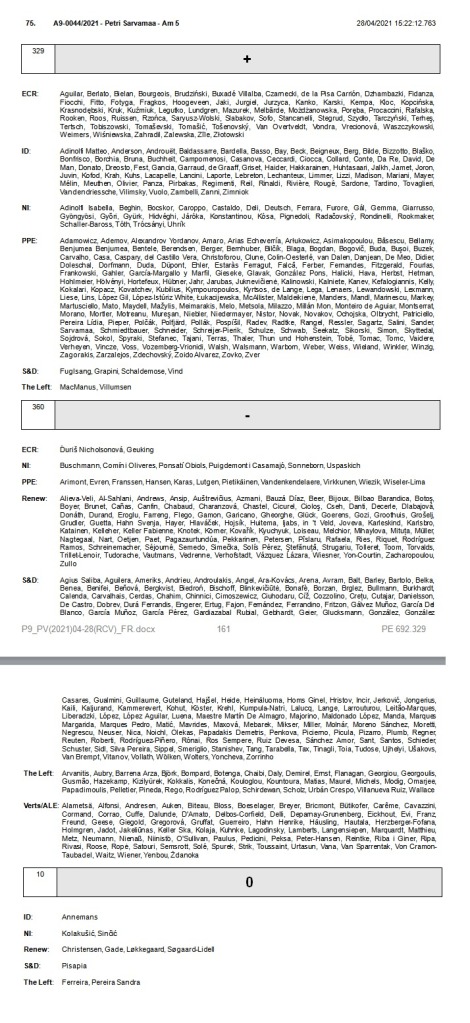
This blog exclusively uncovered how a majority of Members of European Parliament shamelessly voted AGAINST financial transparency surrounding the “Conference on the Future of Europe”. In other words, they were of the opinion that taxpayers should be paying for their – extremely biased – reflection exercise but that it was really not a good idea for those taxpayers to know what would precisely be financed.
Here are some of their excuses:
German Pirate MEP Patrick Breyer (who sits with the green group in the EP):
A bit of a lame excuse, we think. Why vote against a call for “keeping of separate accounts”, something which can make it easier to scrutinise?
One Czech Pirate MEP came to support the German Pirate-in-need:
So apparently citizens and journalists having to deep-dive and search for grants and tenders on three separate institution websites instead of for example displaying all funding involved on the official platform /about section should be considered as Pirate-style transparency.
Then, at least our Pirate friends were so kind to respond, unlike Renew and GUE, for example, despite the fact that we have asked them multiple times to explain their puzzling voting behaviour. Apparently, EU citizens are not only not good enough to be able to properly scrutinize CoFoE financial undertakings, they are also not even worthy of a simple reply on twitter.
Also, this European Commission top advisor has waded in, providing yet another line of defense:
A bit of a weird take.
The fact that a certain amendment was part of a series of separate amendments should not prejudice on how to vote on it.
Also, a “commitment to full transparency” does not mean another committee is needed. The Commission and Parliament could easily be open and publish all communication & engagement related grants under the /about section.
Why don’t they?
Are they trying to hide something?




